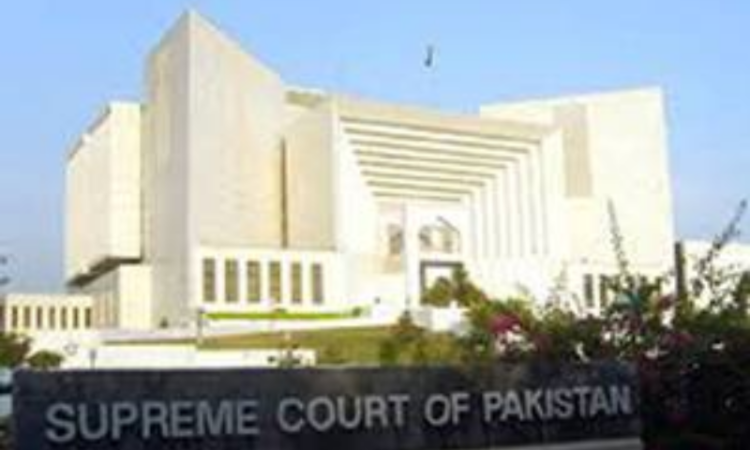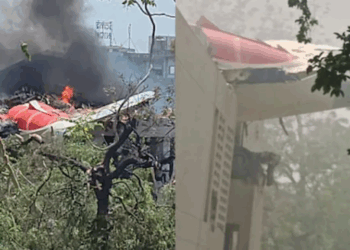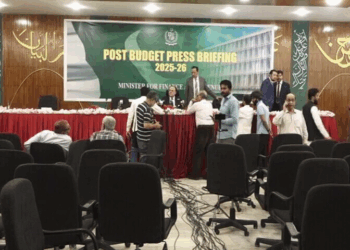Islamabad, February 25, 2025: Supreme Court Justice Jamal Khan Mandokhail on Monday stated that understanding the purpose of the Army Act would resolve half of the issues concerning military trials.
A seven-member Supreme Court constitutional bench, headed by Justice Amin-ud-Din Khan, resumed hearing intra-court appeals (ICAs) challenging the apex court’s decision on the trial of civilians in military courts.
During the proceedings, Uzair Bhandari, representing Pakistan Tehreek-e-Insaf (PTI) founding chairman Imran Khan, argued that even if the Army Act were annulled, the anti-terrorism law would still be applicable. He emphasized the need to determine which legal forum best ensures the fundamental rights of the accused, asserting that Article 245 of the Constitution does not grant judicial powers to the military.
At this, Justice Mandokhail questioned whether a court-martial qualifies as a judicial proceeding. Bhandari responded that while court-martial is a form of judicial authority, it applies only to military personnel, not civilians.
Justice Amin-ud-Din remarked that certain categories of civilians also fall under the Army Act and questioned how jurisdiction over them is determined. Justice Mandokhail added that the Constitution grants the military two distinct powers—one for national defense and the other for assisting the civil government.
Justice Amin-ud-Din further noted that if Article 245 were applied as argued, it would raise concerns about the military’s ability to defend its own institutions. He questioned whether authorities would have to wait for an Article 245 notification in case of an attack on General Headquarters (GHQ).
Bhandari responded that no such permission is required when facing an armed attack, as all institutions, including the police and military, are responsible for defense. He cited the Supreme Court’s ruling in the Liaquat Hussain case, which established that while the military can arrest attackers, they must hand them over to civil authorities, though they may assist in handling detainees.
Justice Syed Muhammad Afghan then posed a hypothetical scenario: “If a military officer and a civilian jointly violate the Official Secrets Act, where should the trial be conducted?” Bhandari replied that the case should be heard in an anti-terrorism court.
Justice Mandokhail reiterated that understanding the purpose of the Army Act would resolve much of the debate, emphasizing that the law was specifically created for the armed forces. He noted that while civilian officers lack the power to impose military-style punishments, military courts possess such authority. He further questioned whether military courts have broad or limited jurisdiction, citing the example of Karachi, where Rangers personnel were tried in civilian courts.
Justice Mandokhail stressed that legislation must align with the Constitution, adding: “No law can be made that contradicts the Constitution. Our dilemma is that laws are often sacrificed for politics.”
Referring to lawyer Salman Akram Raja’s argument regarding separate court-martial forums in India, Justice Mazhar stated that Raja’s stance appeared different from the present case. Justice Mandokhail asserted that the Supreme Court is not bound by lawyers’ arguments and will decide independently based on constitutional principles.
He further questioned: “If Parliament is attacked, should a separate court be established for the trial?” Highlighting the separation of the judiciary and executive, he remarked that military trials blur this distinction, as the complainant in such cases is also the executive authority. “Can a complainant be the judge in their own case?” he asked.
Bhandari warned that if the Army Act permits military trials for civilians, more offenses could eventually be added under its jurisdiction. In response, Justice Amin-ud-Din dismissed the argument, stating that Article 245 is a separate matter. Justice Mazhar added: “Calling in the military under Article 245 does not mean granting it judicial authority.”
Justice Mandokhail then asked whether the court could declare the prime minister’s order null and void, to which Bhandari replied in the affirmative.
At this point, Justice Amin-ud-Din remarked that no prime minister in Pakistan’s history has completed a full five-year term. Justice Hilali rephrased the statement, saying, “No prime minister has been brave enough to complete five years.” Justice Mandokhail, however, pointed out: “Yet, we have legitimized military dictators.”








